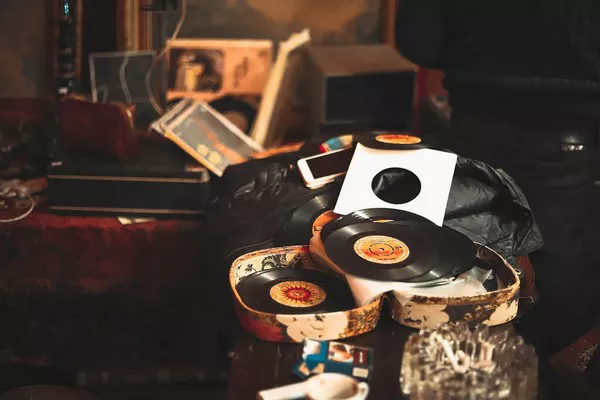Returning to her Southern roots has become a transformative journey for rapper-singer Kari Faux. After spending five years in Los Angeles, Faux’s return to her hometowns in the South provided her with a renewed sense of self and artistic direction. The pandemic prompted Faux to move back to Little Rock before settling in Houston, a city that captured the Southern essence she cherished and reminded her of her passion for rap music.
Faux’s introspective year of reflection culminated in her third album, titled “Real B*tches Don’t Die!” This release not only stands as her most accomplished work but also encapsulates the spirit of the South—slow-paced, laid-back, and characterized by a humid vibe, interwoven with the rhythms of Cadillac funk that reverberate through truck speakers.
The artist’s reconnection with the Southern music she grew up with was instrumental in shaping the album. Faux delved into the sounds of icons like Outkast, UGK, and Three 6 Mafia, as well as the work of lesser-known figures like Dallas rapper Big Tuck, Paul Wall, Chamillionaire’s Color Changin’ Click, and Houston’s Swishahouse collective.
Grief, however, became a pivotal force driving Faux’s art. Over a span of two years, she experienced the loss of a close aunt, a cousin who felt like a sibling, and fellow rapper Chynna Rogers. This wave of sorrow deeply influenced her creative process, propelling her to turn grief into a tribute to those she lost. Rather than solely focusing on the sadness, Faux channeled her feelings into celebrating their lives and embracing moments of joy amidst life’s heaviness.
Her album “Real B*tches Don’t Die!” masterfully navigates the complex interplay between grief and joy, encapsulating life’s tough and tender aspects. Faux’s music resonates with “gangster b—-es that need forehead kisses,” as she raps. Beyond its Southern origin and musical style, the album radiates Southern spirit and intention. One poignant track, “White Caprice,” begins with a prayer resonating with reverb and a distant train whistle, invoking blessings for “Black babies born below the Mason-Dixon.”
Kari Faux’s journey parallels the sentiment André 3000 shared almost three decades ago at the Source Awards, proclaiming that “the South got something to say” in the world of hip-hop. Despite the rise of Atlanta’s prominence and the enduring influence of Memphis’s sound, Faux sensed that Southern rap and her own roots lacked recognition in the urban centers of LA and New York. Her perspective shifted as she returned home, reacquainting herself with the depth and diversity of Southern rap. She found inspiration in its innovation, its ability to provoke thought, and its power to soundtrack both long journeys and late nights.
Faux’s album becomes a heartfelt homage to her Southern heritage and an empowering message to herself. It encourages her younger self to embrace her uniqueness, twang-accented voice, and dialect, reminding her that there’s brilliance and beauty in charting her own path in the music industry.
Kari Faux’s artistic evolution captures the essence of the South, blending it with her personal journey of growth, resilience, and creative self-discovery.



























